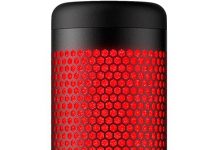Curious about how long a tablet’s battery can hold up? Look no further! In this article, we’ll explore the average lifespan of a tablet’s battery, providing you with all the information you need to make an informed purchase or maximize your current device’s battery life. From factors affecting battery performance to tips on optimizing usage, we’ve got you covered. Say goodbye to constantly searching for outlets and hello to uninterrupted tablet use!
Review contents
Factors Affecting Tablet Battery Life
When it comes to the battery life of tablets, there are several important factors that impact how long a tablet’s battery will last. By understanding these factors, we can make informed decisions to optimize battery usage and maximize the overall lifespan of our tablets.
Battery Capacity
The battery capacity of a tablet plays a significant role in determining how long it will last on a single charge. Battery capacity is measured in milliampere-hours (mAh), and a higher capacity generally translates to a longer battery life. Tablets with larger batteries tend to have a greater overall capacity and can sustain usage for extended periods of time.
Screen Size and Resolution
The screen size and resolution of a tablet also have a direct impact on its battery life. Larger screens and higher resolutions require more power to accurately display visuals, resulting in increased battery drain. Therefore, tablets with smaller screens or lower resolutions may offer longer battery life compared to those with larger, higher-resolution displays.
Processing Power
The processing power of a tablet’s CPU (central processing unit) significantly influences its battery life. Tablets with more powerful processors tend to consume more energy while performing various tasks. On the other hand, tablets with lower-powered processors can often offer improved battery efficiency, leading to longer usage times.
Operating System and Software
The operating system (OS) and software installed on a tablet can also impact its battery life. Different operating systems have varying levels of battery optimization features that help conserve power during usage. It’s important to choose an OS that includes efficient power management features to maximize battery life. Additionally, the software running on a tablet, such as background processes and apps, can contribute to battery drain. Optimizing app usage and restricting unnecessary background processes can help extend battery life.
Network Connectivity
The type of network connectivity used on a tablet, whether Wi-Fi or cellular data, can affect its battery life. Tablets that rely on cellular data connections typically consume more power compared to those connected to Wi-Fi networks. This is because cellular data connections require constant communication with mobile networks, leading to increased power consumption. Utilizing Wi-Fi whenever possible can help conserve battery life.
Multimedia Usage
Multimedia activities, such as video playback, audio playback, and gaming, can significantly impact a tablet’s battery life. Video playback, especially at higher resolutions, requires substantial processing power and screen usage, resulting in quicker battery drain. Similarly, audio playback can also consume significant power, particularly if played at high volumes. Additionally, gaming is a resource-intensive task that taxes both the CPU and GPU (graphics processing unit) of a tablet, leading to faster battery depletion.
Usage Patterns
How we use our tablets also affects their battery life. Idle time, or the duration in which a tablet is not in use, can still result in battery drain due to background processes and connectivity. Screen-on time, or the duration the screen is active, has a direct impact on battery usage. Reducing screen-on time by turning off the display when not in use can help conserve battery. Utilizing sleep mode and power-saving modes provided by the tablet’s operating system can also prolong battery life.
Battery Health
Over time, a tablet’s battery health can deteriorate, affecting its overall lifespan and performance. Factors such as age, usage patterns, and charging habits can contribute to battery degradation. Regularly calibrating and conditioning the battery can help maintain its health and maximize its lifespan. Avoiding extreme temperatures and not letting the battery fully discharge can also contribute to better overall battery health.
Environmental Factors
Environmental conditions can also impact the performance and lifespan of a tablet’s battery. Extreme temperatures, whether excessively hot or cold, can reduce battery performance and potentially even damage the battery. It is advisable to avoid exposing the tablet to extreme temperature conditions. Additionally, high humidity levels can also impact battery life, so it’s best to keep tablets away from excessive moisture. Ambient light, especially when the screen brightness is set to high, can also contribute to increased battery consumption. Lowering screen brightness when not needed can help preserve battery life.
By understanding the various factors that affect tablet battery life, we can make informed decisions to optimize battery usage and extend the overall lifespan of our tablets. From selecting tablets with larger battery capacities and lower-resolution screens to leveraging power-saving features and adopting healthy charging habits, there are numerous strategies we can implement to ensure that our tablets provide us with optimal battery performance for longer periods of time.































